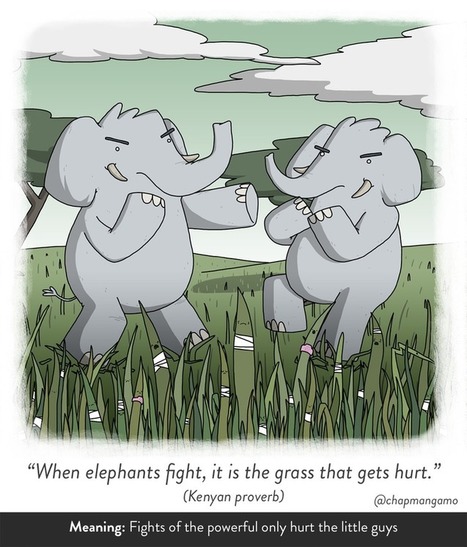If you live in America, chances are you've heard (or used) the phrase "Don't put all your eggs in one basket."
Most of us know it means, essentially, that you shouldn't make all your plans based on one possible thing happening. But it's kind of a weird phrase, right? Have you ever stopped to wonder where it originated?
Its use in print has been traced to the novel "Don Quixote" by Miguel de Cervantes in the early 1600s, although it possibly was mistranslated to an inexact English idiom from the original and may have other roots in Italian phrases.
Different cultures around the world all have their own similar sayings — proverbs, if you will — that make sense to those who've grown up speaking the language but sound downright odd to anyone who hasn't.
James Chapman is fascinated by these sayings and how they translate across languages and cultures....
Via Jeff Domansky



 Your new post is loading...
Your new post is loading...





















Lots of wonderful lessons from the wisdom of these proverbs from around the world.